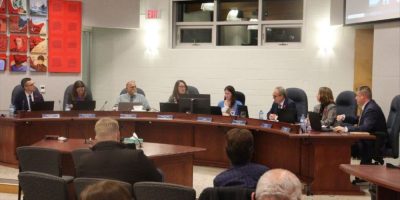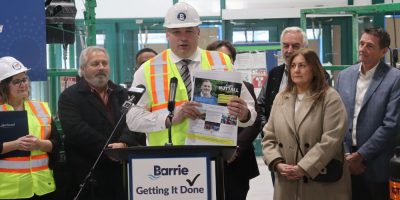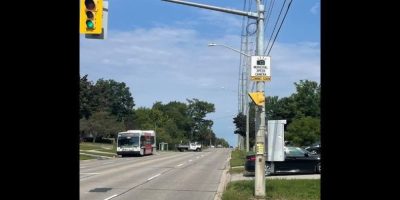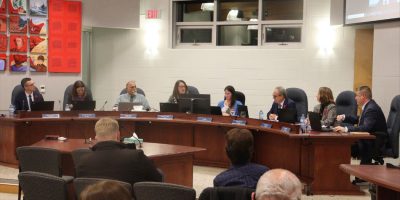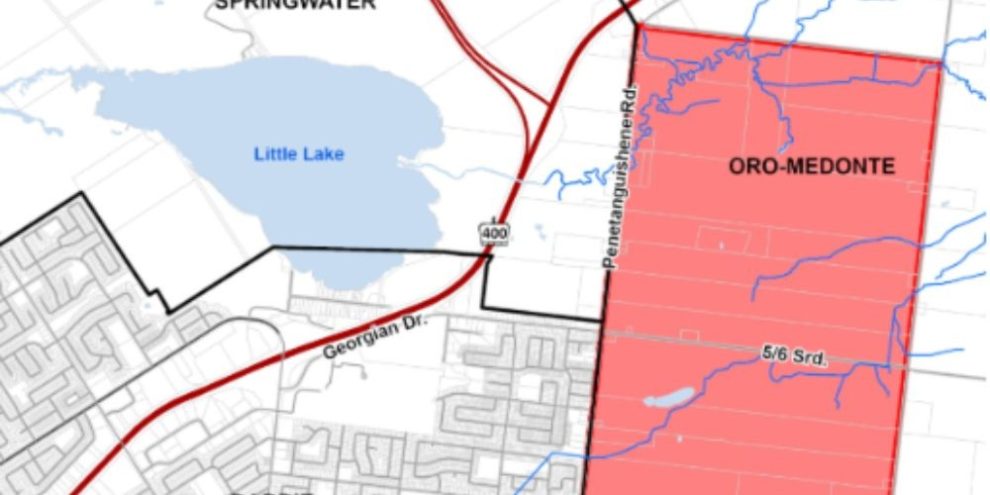
At a special council meeting on Tuesday night, Oro-Medonte councillors approved the City of Barrie's boundary proposal, subject to conditions agreed to by Barrie and recommendations to the Minister of Municipal Affairs and Housing.
There are four amendments recommended by Oro-Medonte that township staff consider to be administrative.
In endorsing the boundary proposal, the township also requests that the Minister of Municipal Affairs and Housing consider:
- deferring any decision on employment land subject to further study on regional and servicing analysis, as this is not a time-sensitive matter
- consider provisions or further protections to ensure the Oro-Medonte land proposed to be annexed are used solely for community purposes
Community land refers to housing and institutional.
"We will continue the fight," said Oro-Medonte Mayor Randy Greenlaw. "The fight is not over. It's now in the hands of negotiation. I feel the best position we are at this time is to try to ensure that these securities get put on."
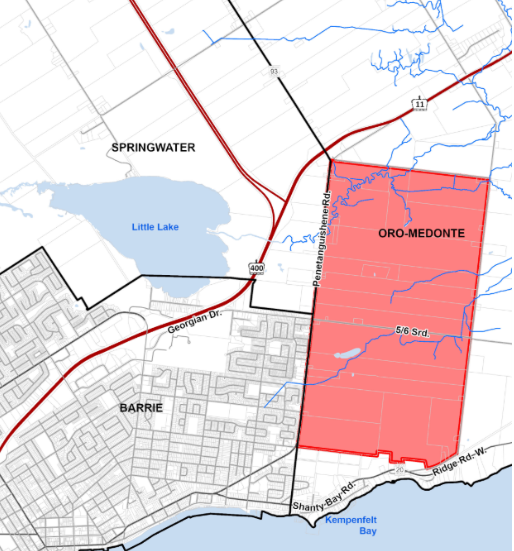
In a staff report to Oro-Medonte council, there are 457 hectares (1,129 acres) of land in the annexation proposal, and of that, 274 hectares (677 acres) are considered developable.
The total land area considered for annexation has been reduced from Barrie's original proposal, the staff report noted.
"Only 0.77% of Oro-Medonte's total land area is being impacted," it states. "Only 1.9% of Oro-Medonte's agricultural land is proposed for residential/community use."
Ward 5 Councillor Richard Schell was the only one to vote against the recommendation from staff. He feels the entire process has been driven by the need to build more housing.
"I said it a long time ago, if we need to build more houses, don't change the boundary line. Build them in Oro-Medonte. If they take our property and our land, it's still going to be built on our land, but the boundaries changed. The tax dollars go to Barrie."
As part of the agreement, the township will receive $15,000 per developable acre from the City of Barrie, or $10.15 million to be paid in a lump sum on January 1, 2026. In comparison, 26 properties in Oro-Medonte would be impacted by Barrie's proposal, which provides just over $43,000 in municipal tax revenue.
The report warned that an outright rejection of the proposal could "negatively impact the township's relationship with the province."
Next up in the boundary batter's cage is Springwater Township, where a decision is expected to be made at a council meeting on Wednesday, starting at 6:30 p.m.
The recommendation to council from staff will be the same as the one presented on October 15 when it was originally expected to be voted on.
Simply put, the report gives councillors the option of rejection or acceptance.

Springwater stands to lose the most land in Barrie's boundary proposal, 1,126 hectares (3,005 acres), of which 596 hectares (1,472) are considered to be developable.
Springwater would receive $15,000 per developable acre or more than $22 million. An additional $850,000 over five years would be given to Springwater related to economic development initiatives.
The restructuring in Springwater would be a mix of employable and community lands.
As well, Barrie has offered water and wastewater servicing to 453 acres of Springwater, 500 City of Barrie waterfront parking passes for five years, and access to Barrie's recreational programs and facilities for five years.
Barrie city council has already approved the boundary proposals.
If Springwater approves the annexation request, the resolutions from all three councils go to the Ministry of Municipal Affairs and Housing, with a request to implement the restructuring proposal through a minister's order, which would be in accordance with the Municipal Act.
Earlier on Tuesday, Simcoe County councillors voted in favour of the annexation, conditional on requirements that safeguard the economic interests of county taxpayers.
These include continued consideration to remove key employment lands from the annexation process; full, unconditional compensation to the county if these lands are not removed; two critical regional approvals from the Ontario government to help offset the anticipated economic losses; and continued infrastructure support.
The City of Barrie wants the restructuring in place by January 1, 2026.
